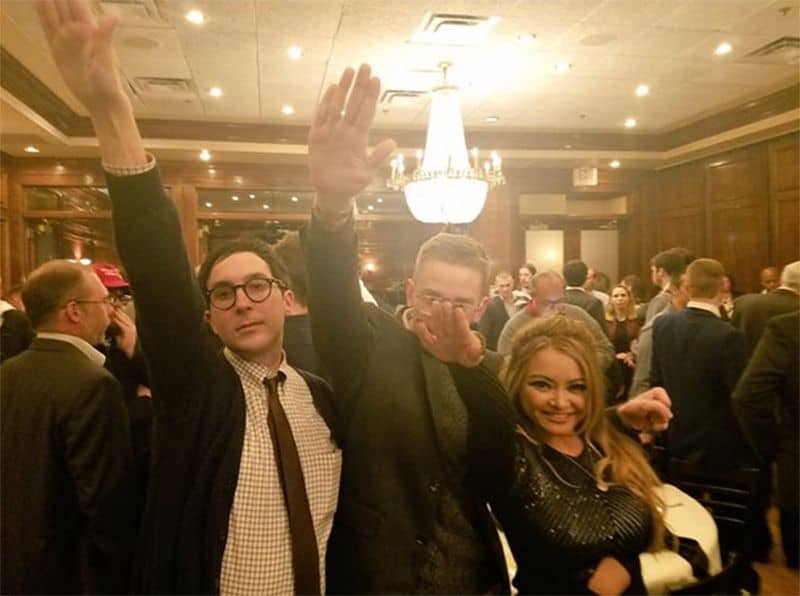
Donald Trump's victory has left some Americans feeling that the lid on hate speech has been ripped off.
The Southern Poverty Law Center has reported some 700 incidents of harassment and abuse since Election Day.
But hateful speech is not a crime.
The First Amendment to the Constitution specifically says, “Congress shall make no law … abridging the freedom of speech.”
According to Nadine Strossen, a professor at New York Law School and a former president of the American Civil Liberties Union, protecting free speech was a key part of declaring American independence.
“It was really an essential element of separating both from Great Britain, and from the legal system of Great Britain,” Strossen says, “that we move from parliamentary sovereignty to popular sovereignty — government by ‘We the People,' as the opening words in the Constitution say.
“And for ‘We the People' to be the governors,” she explains, “we have to have the right to criticize those we elect to represent us, even in very caustic, vitriolic terms.”
Many colonial Americans, and liberals in Britain, had been alarmed by the British government's use of laws against “seditious libel” to try to silence critics in England — for example, the charges brought against radical politician and journalist John Wilkes in 1763.
“The founders [of the United States] themselves engaged in extremely vigorous expression,” Strossen says, “that was as abusive and abrasive as what we call hate speech today, with respect to each other, and in particular, with respect to government officials.”
Attempts to regulate speech by US states have been repeatedly rejected as unconstitutional by the Supreme Court, although the court has ruled that some forms of speech are not protected by the First Amendment.
If particular words cause particular harm, for example, they can be punished. “The Supreme Court,” explains Strossen, “has said that if a speaker intentionally incites imminent violence that is likely to happen imminently, then that speech may be suppressed. And much hate speech does satisfy that definition.”
But plenty of hate speech remains protected. When colleges and universities have tried to regulate hate speech on campuses, their speech codes have been mostly struck down in court. The ACLU has assisted in many of these cases.
“Believe me,” says Strossen, “I don't mean to trivialize. Words are very powerful. They can cause a lot of pain, as well as a lot of joy. And that is precisely the reason why we protect them. Because we recognize that an even greater harm than being hurt in your pride, or angered, or insulted — which words can certainly very powerfully do — but even worse than that is handing over to government a necessarily discretionary, subjective tool to decide which words to punish.
“That is not a power we the people should trust the government to exercise.”
This article first appeared on PRI The World.



